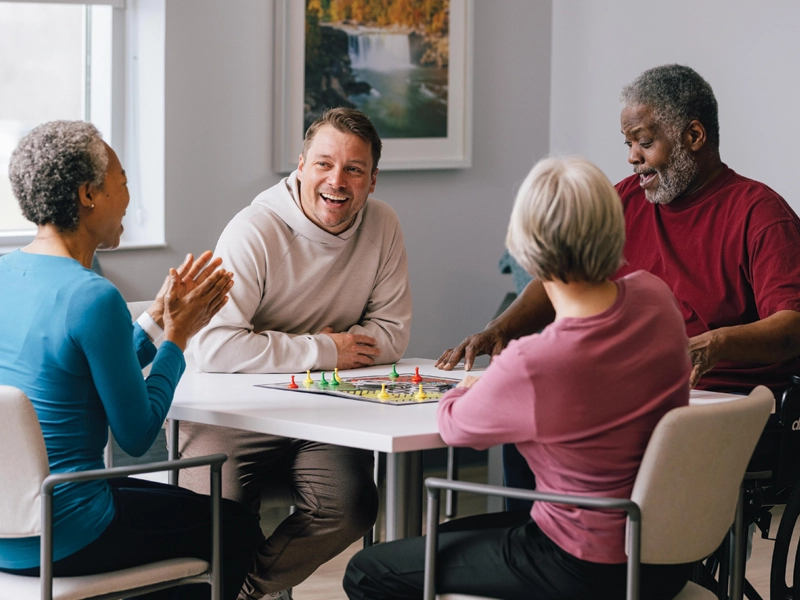What to Expect
We want you to be as prepared as possible before starting one of our specialized rehabilitation programs. See what a typical day looks like at our hospital and the suggested items you should bring with you.
How to Prepare for Your Rehab Stay
We are here for you, and our focus is to provide you with the appropriate level of care to help you reach your maximum potential. We offer a minimum of three hours of therapy at least five days each week.
Here is what you can expect on a typical day at our hospital:
Morning
Your nurse will start your day with treatments and medication as needed. Nursing or therapy staff will assist you as needed with bathing, dressing, and toileting. Breakfast is served in the dining room. Your meal will consist of your choices from the menu that follow the recommendation of your doctor and dietician. You will have therapy scheduled throughout the day. Your therapy schedule will be displayed in your room each evening for the following day.
Mid-Day
Lunch is served in the dining room, consisting of your choices from the menu, following recommendations from your doctor and dietitian. Your nurse will administer any treatments and medications as needed. Your therapy sessions will continue into the afternoon. Your schedule can be modified as necessary to include breaks. Your nurse will continue to check on you throughout the day.
Night
Dinner is served in the dining room. Snacks will be available as needed later in the evening. The evening is a good time for family and friends to visit and for you to rest and prepare for the next day of therapy. Your nursing staff will assist you with bathing, changing into nighttime attire and getting ready for bed.

All patients of our hospital are encouraged to join us in our dining room for each meal. We believe the act of dining in a social setting is an essential aspect of our many rehabilitation programs. We encourage family/caregivers to participate during meal times, but due to space limitations in our dining rooms, we respectfully request 1-2 visitors per meal when capacity requires this restriction. If you are interested in accommodating a larger party, please speak with your case manager to make alternative arrangements.
Patients admitted to our brain injury secure unit may be served in the dining room or another location based on their individual needs. This allows us to maintain a low-stimulation environment crucial for recovery from illness or injury.
The menu is the same for patients, staff, and visitors. The menu is posted daily in the cafe.
Dining Schedule
Breakfast: 7 a.m. – 8:30 a.m.
Lunch: 11:30 a.m. – 1 p.m.
Dinner: 4:30 p.m. – 6 p.m.
What You Should Bring
Items that you may find necessary to have with you during your admission to inpatient rehabilitation include:
- Loose-fitting clothing
- Sturdy, low-heeled shoes or sneakers with non-slip soles
- Undergarments/socks
- Nightgown or pajamas
- Robe/slippers with non-skid soles
- Personal items such as eyeglasses, hearing aids, contact lenses, C-PAP/Bi-PAP, cosmetics, toiletries
- Special medications not available in our pharmacy
- Copy of advance directives, living will, power of attorney
- Jacket or sweater
All your personal belongings should be labeled with your name. It works best to leave valuables (cash, jewelry) at home.
Discharge Planning
The rehabilitation process doesn’t stop here. We believe that early discharge planning is the key to eliminating any barriers that stand between you or your loved one returning back to the community. Your case manager will work in conjunction with your rehabilitation team to ensure a smooth, safe plan for discharge after your treatment is completed with us.
Resources:
- Portable Patient Health Profile
- Info on Directives
- Medical Power of Attorney



